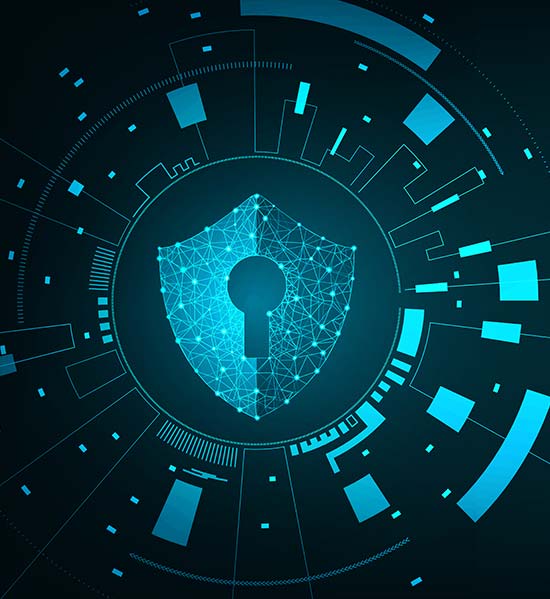Berkeley Cybersecurity Boot Camp

Explore » Curriculum | Online Experience | Support | Career Services | How to Apply | Schedule & Dates | FAQs
Cybersecurity Boot Camp in the San Francisco Bay Area
Learn Cybersecurity Online in 24 Weeks
Berkeley Cybersecurity Boot Camp is a challenging, part-time program that takes a multidisciplinary approach to attain proficiency in IT, networking and modern information security, throughout the course of 24 intensive weeks.
- Gain experience with a host of popular tools such as Wireshark, Kali Linux, Metasploit, Nessus and more.
- Learn skills applicable to certifications such as the CompTIA Security+, Network+, Linux+, Server+, Cloud+ and certified Ethical Hacker (CEH).
- Advance your skillset even if you’re currently employed or in school through convenient evening classes.
- Benefit from a comprehensive set of career services to help equip you for success as you work to change career paths or advance in your current position.
*https://www.ibm.com/blogs/insights-on-business/consumer-products/2-5-quintillion-bytes-of-data-created-every-day-how-does-cpg-retail-manage-it/

Is a Cybersecurity Boot Camp Right for You?
If you are eager to become a digital defender and learn how to keep data safe from prying eyes, or if any of the below describe you, enrolling in this program could help put you on the path to achieving your goals:
- You are currently working in a technical field and want to expand your cyber knowledge, better understand how to keep data secure and learn hands-on skills to apply on the job.
- You are a part of a company that has urgent cybersecurity needs to protect the confidentiality, availability and integrity of data and software.
- You understand the growing need for cybersecurity professionals and want to become a part of making the internet a safer space.
- You are a tech enthusiast looking to start your career in tech and get your foot in the door in the world of networking and security.
If you think this is you, and you want to further your professional development, fill out the form below to get more information on the Cybersecurity Boot Camp!
Learn Market-Driven Skills
Building On The Basics
Achieving your goals in cybersecurity requires not only deep security knowledge but also experience with the application of that knowledge. Our curriculum is designed to give you both the knowledge you need to move toward the cybersecurity industry and ample experience applying that knowledge to real-world problems.
Throughout the program, you will learn tools and technologies vetted by current practitioners, and learn skills applicable to certifications expected of all serious security professionals.
At Berkeley Cybersecurity Boot Camp, students get hands-on training in networking, systems, web technologies, databases, and defensive and offensive cybersecurity. You will also learn methods, techniques and best practices for accurately conveying the severity of the risks facing an organization’s security posture.
You’ll learn from skilled instructors and gain real-world experience by collaborating with your peers. Through hands-on application, you’ll gain the confidence you need to tap into the industry. The curriculum* will dive into the foundational skills for cyber and network security, including:
Networking:
- Packet Analysis
- Wireshark
Systems:
- Windows and Linux Administration Techniques
- Windows and Linux Hardening
Cybersecurity:
- Secure Network Design and Architecture
- Risk Management
- Cryptography
- Vulnerability Assessment
- Identity and Access Management
- Cloud Security
Ethical Hacking and Penetration:
- Kali Linux
- Metasploit
- Hashcat
- Burp Suite
- Web Vulnerabilities and Security
Cybersecurity Careers:
- Digital Forensics Methods
- Penetration Testing
- Vulnerability Assessment
- Security Operations and Analytics
Programming and Scripting:
- Bash Scripting
- PowerShell Scripting
*The material covered is subject to change. Our academic team adjusts to the market demand.
By the Time You Complete the Online Cybersecurity Boot Camp, You Will Know How To:

- Conduct a Vulnerability Assessment: Take the necessary steps and identify any susceptible vulnerabilities in networks, systems and computer hardware to fix flaws and prevent future cyber attacks using industry tools like Metasploit and more.
- Configure Machines on a Virtual Network: Network infrastructures are crucial to communication channels and can lead to security-related problems. That’s why proper setup and deployment to the cloud helps mitigate risks and improve data security.
- Identify Suspicious Patterns of User Behavior: Every day, thousands of online attacks are being committed; as such one of the main responsibilities of a cybersecurity professional is to detect erroneous or abnormal user behavior and prevent potential breaches from occurring.
- Write Bash Scripts: As a cyber defender you’ll need to automate multiple commands, and in order to continue advancing your skills you will learn how to execute advanced shell scripting that can be reused in various analyses and reports.
Start Your Cybersecurity Boot Camp Journey
Steps to Apply
- Form Submission. Fill out our program interest form with a few of your key details so we can get in touch with you.
- Admissions Interview and Application. Connect with a member of our admissions team for a quick phone interview to discuss the program in more detail, answer your questions and talk through your goals. Then, fill out a short application that tells us more about you and your reasons for pursuing this opportunity.
- Assessment. Complete a multiple-choice critical thinking and problem-solving assessment. This is your chance to show us your logic-based skills. No prior industry experience is required to complete the assessment. If you pass your academic assessment (congratulations!), you are officially accepted into the program and able to move forward with the enrollment process.
- Financial Options, Deposit and Enrollment Agreement. After acceptance into the program, you will connect with admissions to discuss which financial option works best for you. Once you’ve approved your desired payment method, the last step to finalize your enrollment is to pay your deposit and review and sign your enrollment agreement.
Embark on Your Journey. That’s it! You’re now ready to begin your program pre-work and prepare to start the boot camp.
Cybersecurity Job Outcomes in San Francisco
You’ll gain the skills applicable to any of these careers:
This vital role is being sought by employers more and more each day. These analysts detect online threats and breaches by managing the day-to-day security operations and maintenance for an organization. By monitoring activity on networks, running penetration testing and vulnerability reports, analyzing unusual behavior, utilizing relevant industry tools and implementing necessary patches to safeguard confidential data, cybersecurity analysts make up the backbone of an organization’s overall security.
With cyber breaches causing significant harm these days and financially impacting organizations, strong defense mechanisms are needed. Cybersecurity network defenders are familiar with protecting, detecting and responding to network attacks. Their duties include testing software infrastructures, analyzing potential threats and being knowledgeable in operating systems, firewall configurations and data recovery. These roles are particularly in demand in the Army to guard against online attacks via cyberspace and computer networks.
Dedicated to protecting online systems, cybersecurity operations specialists focus on monitoring, identifying, analyzing and evaluating any and all cyber threats and weaknesses that an organization may encounter. By working closely with other information security teams, they generate continuous assessments ranging from improving the performance and effectiveness of networks to configuring resources with up-to-date standards.
These online detectives perform extensive forensic examinations of operating systems and are valuable assets in the federal government. While having a technical background is useful, having strong investigative skills is just as important — if not more. Daily responsibilities for this role will vary, but more or less involve forensic analysis, reporting, operational security assessments, recovering lost or deleted data, intelligence-based reporting and much more.
There’s been an online breach — what now? How do you figure out what exactly happened and what steps to take following the intrusion? Incident report analysts identify and oversee active security threats by monitoring online systems and networks, identifying security deficiencies and performing audits and assessments. They’re responsible for putting together effective incident report plans that detail the necessary measures to take when cyber attacks occur.
The title says it all. These specialists focus on securing online networks and systems and as such are in demand across a wide range of industries. Their ongoing duties involve forming cybersecurity standards, maintaining firewall and server protection, troubleshooting performance inconsistencies, carrying out system configurations and upgrades and designing recovery plans that incorporate vulnerabilities countermeasures.
Computers communicate to one another by means of networks. In order to defend devices from security threats and incidents, they need protection and that’s where these administrators come into play. They ensure these connections are secure by installing, configuring and managing all webs of information transfers. While a Network Administrator will specifically focus on the IT side of things, a System Administrator oversees both software and hardware upkeep. At the end of the day, these roles may overlap and will depend on an organization’s needs.
Also referred to as the Security Operations Center (SOC) for the team they fall under, these analysts often work on internal teams in an organization monitoring and combating online attacks that may pose a threat. These days, there are many malevolent forces scouring the web looking for ways inside businesses IT systems. These security advisors are always on watch, staying alert for suspicious activity in emails and network logs, running malware analysis and incident reports and driving compliance initiatives.
There’s nothing more important than having a safety plan in place. That’s exactly what these professionals do on a daily basis. They are responsible for providing quality security analysis through the integration, testing, operations and maintenance of systems. By assessing the current status and functionality of current security measures, ensuring all operations are properly documented, recommending necessary modifications and collaborating with other team members to push implementations, they help keep cyber threats to a minimum.
Find the Career Right For You
There are many different pathways and resources you can utilize to kickstart your professional development. We’ve streamlined this challenging process with the help of our dedicated Career Services team. We’re committed to supporting each student throughout their occupational journey, tapping into our network of partners to offer relevant industry workshops, networking opportunities, portfolio reviews, career coaching and much more. You’ll be assigned a Career Director and Profile Coach to help you combine both your technical and soft skills with the necessary tools and mindset to enter the job market. By following a series of milestones, you’ll work to transition from being employer ready to employer competitive, ultimately showcasing your newfound knowledge and capabilities.
The Market for Cybersecurity Experts in San Francisco
Today, data travels in all directions at lightning speed, meaning that cybersecurity measures need to become increasingly sophisticated and varied just to keep up. Over the past several years, the occurrence of cyber crime has increased to include cyber espionage, ransomware and phishing schemes. As a result, cybersecurity spending is expected to exceed $1 trillion by 2021, as reported by Cybersecurity Ventures.
This also means that cybersecurity professionals are becoming increasingly valuable, and employers are struggling to find qualified professionals. Employers in the U.S. currently retain less than half of the cybersecurity candidates they need to keep up with demand. Right now, there are only 48 qualified candidates for every 100 cybersecurity job postings — that means that in order to meet the current global demand, the cybersecurity workforce needs to grow by 145 percent.
In San Francisco, there are a considerable number of cybersecurity positions available in a wide variety of industries. Leading technology companies like Google, Microsoft and Salesforce regularly hire for roles that require the skills and experience that cybersecurity professionals possess. In addition to big tech, those with the right qualifications can also work for fast-growing startups. There is no denying San Francisco’s status as a startup hotbed. Currently, the majority of U.S. unicorns (startups valued over $1B) are headquartered here in the Bay Area.
Getting started in cybersecurity requires not only deep security knowledge, but also experience with the application of that knowledge. Berkeley Cybersecurity Boot Camp is designed to give you both the educational background you need to move toward the cybersecurity industry and ample experience applying your new skills to real-world problems. Explore our curriculum to learn more.
Cybersecurity Boot Camp Dates and Schedule
Part-Time Classes
- 24-week program
- Classes held three weekdays from 6:30 to 9:30 p.m.
Currently Enrolling
- Part-Time Online 07/29/24
- Full-Time Online Soon
- Part-Time Soon
Frequently Asked Questions
Our cybersecurity boot camp in Belmont is being held via our tried and tested virtual classroom experience. Call us at (510) 455-4208 for more information on how to apply, or visit our Online Experience page to learn more.
No, applicants to the Berkeley Cybersecurity Boot Camp do not need to be Berkeley students. This program is offered through UC Berkeley Extension.
No experience is needed as long as you are dedicated and eager to learn. Our pre-course tutorials will help you prepare for our program.
In 2019, Cybersecurity Ventures estimated there would be 3.5 million unfilled cybersecurity roles by 2021. The time has come and passed. With cyber attacks occurring more and more each day, the demand for knowledgeable professionals continues to increase. (ISC)2 claimed there were 3.1 million unfilled roles last year, advising that the U.S. cybersecurity workforce must grow by 62 percent to close the skills gap. Aging IT infrastructures will only cause more complications and become key areas of weaknesses for hackers to infiltrate.
The cost of the part-time program is $14,495*. Scholarships and payment plans are available for those who qualify.
*Tuition is subject to change
Students can complete the part-time program in 6 months (24 weeks).
Ready to learn more about Berkeley Cybersecurity Boot Camp?
Contact an admissions advisor at (510) 455-4208.
 Live Chat
Live Chat